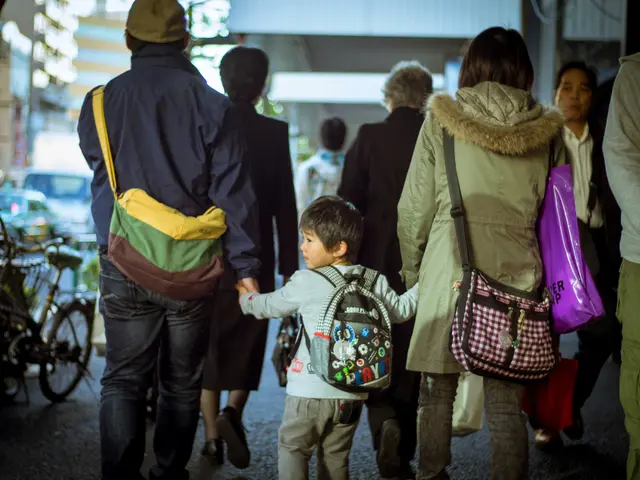Breaking: UK Prime Minister Starmer's Manifesto to Ditch Foreign Workers, Focus on Youth Development
UK Prime Minister Keir Starmer declares intent to eliminate reliance on foreign workforce, emphasizing prioritization of domestic youth.
British P.M. Keir Starmer has taken the bull by the horns, emphasizing the need for national self-reliance and championing the cause of Britain's youth. Railing against the country's over-reliance on foreign labor, Starmer proclaimed his vision on public platform X, stating, "Britain's been hooked on cheap foreign labor for years, while one in eight of our young folks aren't in school, work, or training. I'm putting our kids first, investing in their skills and breaking free from this overseas labor dependency."
This announcement arrives in the wake of a significant shift in the UK government's immigration policy, as outlined in the Immigration White Paper, Restoring Control over the Immigration System. The policy's primary focus is to better manage migration while fortifying the domestic workforce.
Under mounting public and political pressure, Starmer's Labour administration introduced sweeping immigration reforms, aiming to secure the country's border. The Immigration White Paper represents a significant departure from past immigration strategies, with Starmer implicating previous governments for allowing net migration to surge – from 224,000 in 2019 to a staggering 906,000 in 2023, the size of Birmingham's population.[1]
A New Era: Empowering Domestic workers, Boosting Economy
Starmer's new plan targets migration reduction and prioritizing investments in domestic workers, cementing his administration's commitment to domestic job creation and economic self-sufficiency. One significant sector to be affected by this policy change is social care. According to the data, around 1,40,000 health and care visas were issued in 2023, with 39,000 going to Indian nationals.[1] Despite their critical contributions, concerns about exploitation have ignited the government to reconsider its approach.
According to a Home Office statement on May 11, overseas care workers have suffered "shameful levels of abuse and exploitation." Given these concerns, the policy focuses on enhancing the quality of care and ensuring a safer environment for both local and overseas workers.[4]
The Closure of Social Care Visa Route and a Transition Period
As part of the policy change, the UK government has announced the closure of the social care visa route for new applications from abroad. Although the door will remain open for existing employers until 2028, allowing them to adjust to the new conditions.[1][2]
Boosting Domestic Recruitment and Training Standards
In an effort to curb reliance on international recruitment, the immigration white paper highlights the importance of boosting domestic training and elevating skills standards for workers and employers alike.[3]
General Immigration Policy Changes
The policy aims to bring net migration figures down by focusing on skilled workers while limiting access to the points-based system to positions with long-term shortages.[3]
Opposition and Concerns
Despite the challenges, voices of dissent, particularly from employers and politicians in the health and social care sectors, have been raised, expressing concerns over potential workforce shortages.[5] However, better opportunities may lie ahead for qualified overseas care workers under the new policy.[5]
- Keir Starmer's manifesto, aimed at ditching foreign workers and focusing on youth development, signals a shift towards domestic self-reliance in the UK economy.
- With the closure of the social care visa route, the UK government is boosting domestic recruitment and training standards as part of its comprehensive immigration policy changes.
- The new policy, aimed at reducing net migration, targets skilled workers and will prioritize investments in the domestic workforce, potentially impacting sectors like social care.
- Concerns over potential workforce shortages have been raised by employers and politicians in the health and social care sectors, as the policy implicates long-term changes in the UK's finance, investment, and policy-and-legislation surrounding immigration and labor.








